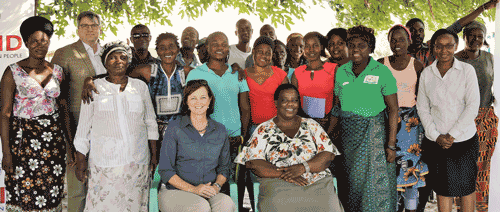
Stopping wildlife crime with the help of local communities

The Sikunga Conservancy near Katima Mulilo held a public speaking training workshop for women from different conservancies in the Zambezi Region, a fortnight ago.
The U. S Ambassador Lisa Johnson also took part in a the workshop which was designed to build essential public speaking skills and empower rural women to play a more prominent role in conservation, particularly in the fight against wildlife crime.
Johnson said the wildlife crime is a critical threat to economic development and it undermine security and threatens legitimate economies.
“When we lose wildlife and security as a result of the illegal wildlife trade, we also lose the tools essential to fight extreme poverty,” she added.
She also stressed the importance of local ownership of conservation efforts to their success. “Indigenous communities and local people, women in particular are important agents in wildlife conservation, sustainable use, improved livelihoods and in the fight against wildlife crime,” she added.
The workshop was sponsored by the Combating Wildlife Crime in Namibia and the Kavango-Zambezi Area (KAZA) program, which is funded by the U.S Government through the United States Agency for International Development (USAID).
The Combating Wildlife Crime in Namibia and the KAZA Area programme is a five year, US$17.6 million initiative to counter threats from transnational wildlife crime to endangered populations of black rhino and elephant the country.
Caption: Seated from left to right, U.S Ambassador Lisa Johnson and Janet Matota from Integrated Rural Development and Nature Conservation with the women who participated in the public speaking training hosted at the Sikunga Conservancy near Katima Mulilo.











































